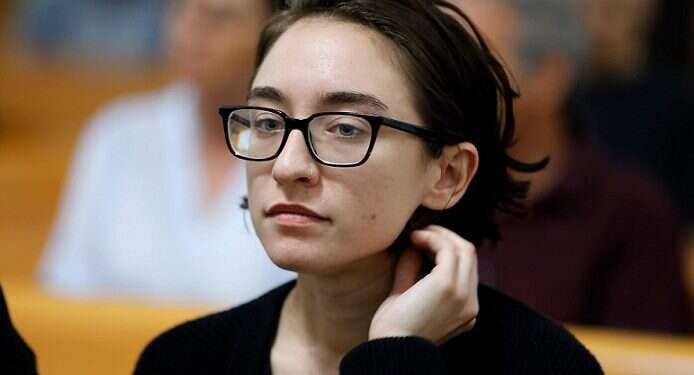The Supreme Court on Thursday overturned a lower court ruling that had initially upheld a government decision to bar an American graduate student from entering the country over her involvement with the anti-Israel boycott, divestment and sanctions movement.
Lara Alqasem, 22, was refused entry when she arrived in Israel on a study visa on Oct. 2. Security officials cited her role as president of a local chapter of Students for Justice in Palestine at the University of Florida as the reason for turning her away.
Upon hearing Alqasem's appeal, the Supreme Court ruled that her express desire to study in Israel contradicts the premise that she allegedly supports an anti-Israel boycott.
In their ruling, Justices Neal Hendel, Uzi Vogelman and Anat Baron warned that if the state did in fact try to deport her because of her personal politics, it was a "radical and dangerous step" that could erode Israeli democracy.
Validating the position of the Hebrew University of Jerusalem, which joined Alqasem's petition, the ruling said that "denying foreign students accepted into international programs entry at the airport is detrimental to the university's relations with other universities around the world and causes irreversible damage to the international ties it fosters."
"It appears, therefore, that under the circumstances of this case, the appellant's studies at the Hebrew University will serve as another point in Israeli academia's struggle against the boycott phenomenon."
Deporting Alqasem and preventing her from attending university in Israel "may cause significant damage to Israel's image, thus achieving the opposite result the legislator sought to achieve," the court said.
Alqasem said in a statement that she was "relieved at the court's decision" and thankful for the support of her friends and family.
Her lawyers, Yotam Ben-Hillel and Leora Bechor, said she was released from Ben-Gurion International Airport, where she had been held in detention since arriving in Israel, shortly after the court announced its ruling.
They lauded the ruling as a victory for free speech, academic freedom and the rule of law.
"Lara has ensured that no one else should be denied the right to enter Israel based on sloppy Google searches and dossiers by shadowy smear groups," they said in a statement.
The Hebrew University also welcomed the ruling, saying it was "looking forward to welcoming Lara to class next week."
In the political echelon, however, the Supreme Court ruling drew strong opposition. "The decision to allow a student who openly acts against the State of Israel to stay in the country is disgraceful," Interior Minister Aryeh Deri remarked Thursday. "Where is our national pride? Would she dare act against the United States and then demand to stay and study there?"
Strategic Affairs Minister Gilad Erdan, whose office heads Israel's counter-BDS efforts, said, "I'm deeply disappointed. Unfortunately, the court has given the BDS movement a great victory, as its ruling renders the anti-boycott law hollow."
He said the ruling "reflects a lack of understanding of how BDS groups operate, and it damages Israel's ability to fight boycotts.
"Once again, the Supreme Court has decided to circumvent the Knesset and the legislators' intention by assuming authority reserved for the executive branch," he said.
Tourism Minister Yariv Levin castigated the justices, saying that "with this shameful ruling, the court continued to undermine democracy and the Knesset's legislation."
"Instead of law enforcement authorities preventing Alqasem's entry to Israel, she is allowed to earn academic degrees in Israel while exploiting the resources of the very country she seeks to boycott," he said.




